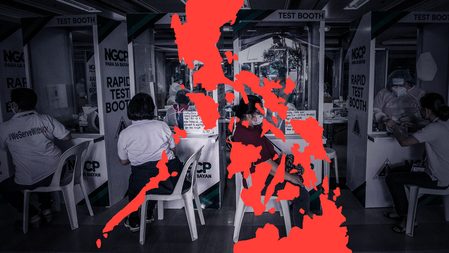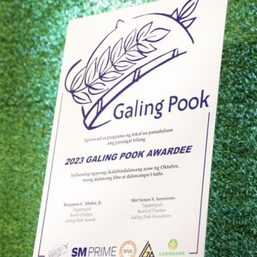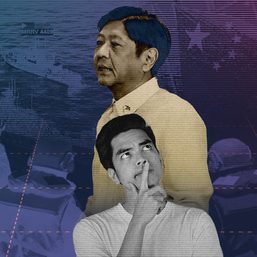SUMMARY
This is AI generated summarization, which may have errors. For context, always refer to the full article.
![[OPINION] Of geopolitics and pandemics](https://www.rappler.com/tachyon/2021/02/IMHO-GEOPOLITICS-PANDEMIC-1280.jpg)
A year after the World Health Organization (WHO) shared information about a cluster of mysterious pneumonia cases in Wuhan, China – that led to the eventual declaration of the COVID-19 pandemic – global cases and deaths have breached the 100 million and 2 million marks, respectively.
Ironically, the origins of, response to, and way forward from this once-in-a-century crisis are still fraught with numerous complexities and uncertainties, if not conspiracy theories.
That it came from China; that the WHO is once again under close scrutiny for its allegedly lackluster role in pandemic response; that superpowers of the world like the United States and United Kingdom, which emerged high up in the Global Health Security Index of 2019, have the most number of cases and deaths; that emerging economies like Brazil, India, Russia, and Mexico are still scrambling to contain it; and that most countries in the Asia-Pacific – some of which have “lesser” international powers (Vietnam, Taiwan, Thailand, Singapore, Malaysia) – have already been hailed as better than other countries in their response, regardless of individual country characteristics. All of these reek of geopolitics.
It is very obvious that a disease of global scope should also be addressed at the global level. But this is easier said than done. The usual factors that seem to influence capacities for pandemic response – the adequacy or lack of it – are not only related to levels of economy, population, country size, and political regime.
A prevailing theme that should also be brought to the fore is a geopolitical one. This intricate COVID-19 narrative being told pertains to the play of power that exists among countries of different types of governments, geographies, interests, relationships, and resource complements. This is arguably the story that had determined, is still determining, and will be determining the fate of individual countries (not exempting the Philippines) in this pandemic response.
While we are harping on a global coordinated response to COVID-19, different countries are still busy doing their own brand of reactionary response to alleviate the sufferings of their citizens without so much regard to their role in international affairs. We can’t blame countries guilty of this, as they are only acting in their best interests for the common good of their citizens. And so they say.
As things are, desperate times call for desperate measures, albeit at the expense of global health security and international relations.
Border closures; travel bans; the branding of safe and unsafe, healthy and unhealthy places and citizens; the decision and timing of sharing epidemiological information; the focus on allocation of resources; the treatment of immigrants; the prioritization of aid distribution; access to vaccines, diagnostics, treatment – these geopolitically oriented issues have substantial policy implications for countries and their public health sectors to consider.
In the midst of this COVID-19 storm which has badly battered our health systems, economy, and society – even with bold political will from an able captain; improved public health capacities built by a well-trained and highly experienced crew; religious obedience of passengers to public health protocols; a sturdy ship of a health system to weather the strong winds, currents, and any impediments underneath – it is still imperative to know and understand the treacherous geopolitical waters that we are sailing in if we are to reach our port of destination as safely and as fast as we can.
For a low-to-middle-income country and lesser power like the Philippines, where health inequality is a key issue, the traditional regard for social determinants of health, looking at poverty, employment, job security, housing, and transport, is essential but incomplete without an examination of the geopolitical determinants of health.
A better understanding of geopolitics in the context of health can lead to the development of evidence-based and more nuanced health policies that not only respond to domestic issues but shape global health discourse as well.
Applied to our pandemic response, geopolitical analysis can inform existing health strategies and approaches by making them more holistic, interdisciplinary, and robust, so outcomes of our pandemic response can be made more predictable and effective.
What are our interests? How do we position our country? What are our resources? How do we leverage these? What relationships do we preserve? How do we hold on to our core values?
These ruminations as we do our health and diplomacy work are critical at this juncture of our pandemic response. As we continually beef up our domestic response, we are also pinning our hopes on global solidarity to help us find our way out of this crisis sooner than later.
In the public health sector, we are not quite sure yet of the notion that the world order will never be the same again after COVID-19.
But we are certain about these: safe and effective vaccines and treatments; much improved public health systems; healthier people who are better protected from any health threat that may come; a fairer world where the lesser among our brethren are given more – these are images of the global health future that awaits us as long as all countries work together and pull in the same direction. – Rappler.com
Ronald Law is a physician, public health practitioner, and academic-scholar investigating the topic of health security in relation to global health.
Add a comment
How does this make you feel?


![[Newsstand] The Marcoses’ three-body problem](https://www.rappler.com/tachyon/2024/04/tl-marcoses-3-body-problem.jpg?resize=257%2C257&crop=451px%2C0px%2C1080px%2C1080px)
![[Edgewise] Preface to ‘A Fortunate Country,’ a social idealist novel](https://www.rappler.com/tachyon/2024/02/a-fortunate-country-february-8-2024.jpg?resize=257%2C257&crop_strategy=attention)
![[New School] When barangays lose their purpose](https://www.rappler.com/tachyon/2024/02/new-school-barangay.jpg?resize=257%2C257&crop=414px%2C0px%2C1080px%2C1080px)






There are no comments yet. Add your comment to start the conversation.